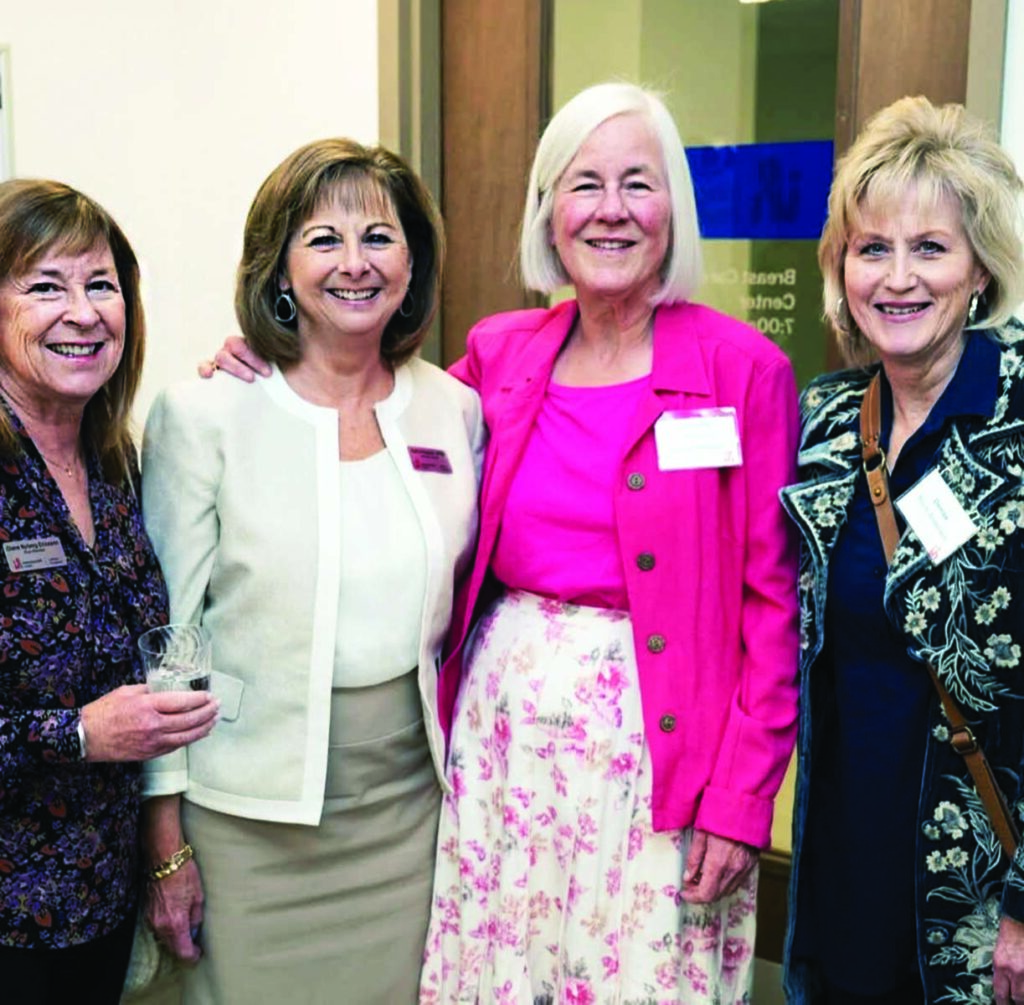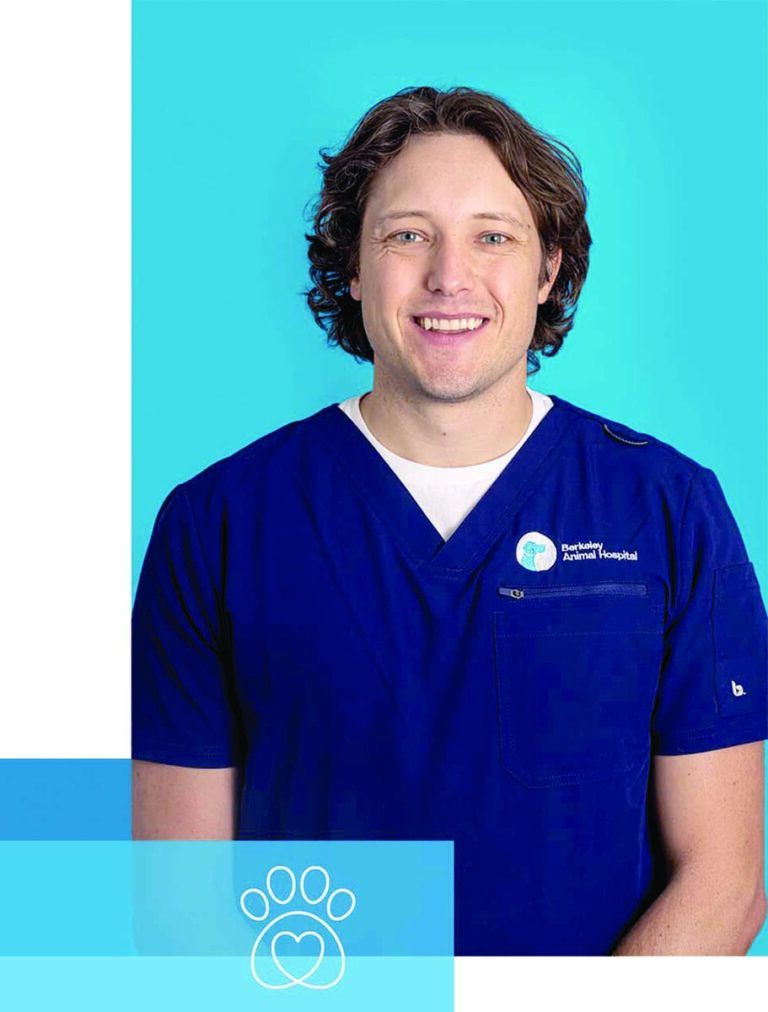In early 2025, Lutheran Medical Center named its new Breast Care Center after oncologist and hematologist Dr. Jennifer Caskey.
Caskey, who has been involved with the Lutheran Hospital Foundation since her retirement in 2017, wasn’t eager for the recognition. She preferred to stay out of the spotlight.
“She practiced what she preached,” said her colleague and friend Denise Black-Andersen. “She was a significant donor for the new hospital. She was the guiding force behind the Breast Care Center.”
Black-Andersen, who served as Lutheran’s Director of Oncology Services, worked alongside Caskey to build up the hospital’s breast cancer program. She describes Caskey as humble, but says the center couldn’t bear a more fitting name.
“I don’t think she realizes what she did for the community and for patients,” Black-Andersen said.
Caskey earned her MD at the University of Massachusetts and completed her internship and residency at Parkland Hospital in Dallas. She came to Colorado for a fellowship in hematology and oncology at the University of Colorado.
“When I got into the nuts and bolts of the training in hematology and oncology, I found that I really liked relating to the oncology patients,” Caskey said.
At the time of her training, oncology was still in its infancy, relying on trial-and-error treatments and with less understanding of what fueled cancer cells.
“What did attract me was the relationships with the patients,” Caskey said. “I liked seeing people in a critical moment in their lives. They’re vulnerable. It was very heartfelt to be part of what was happening in their lives, and feeling that you could help in any way was very meaningful.”
Caskey began working with Lutheran in 1989 while still in solo practice. A breast cancer surgeon in the area began referring patients to her when she left Colorado, opening the door for Caskey’s work with breast cancer patients.
“That probably got my foot in the door, in terms of seeing people with breast cancer, but I always had a strong interest in it,” Caskey said. “My sister was diagnosed with breast cancer in 1987. That naturally had an impact on me. And I just loved taking care of people with breast cancer.”
By the early 2000s, Lutheran launched its first breast center, and Caskey played a key role in its first capital campaign. The center expanded to support patients at every stage of their journey—from diagnosis and treatment to support groups and genetic testing. Linda Fiske served as the hospital’s first breast cancer navigator. Research from Lutheran’s center went on to inform studies on managing the side effects of treatment. The program grew to include physicians, nurses, social workers, physical therapists, nutritionists, genetic counselors and clinical research staff.
Caskey collaborated with surgeons including Betsy Brew, Nelson Mozia, Rebecca Wiebe, and Bryan Baer, who performed many of Lutheran’s breast cancer surgeries.
In 2007, Lutheran recruited Dr. Juhi Asad, the first fellowship-trained surgeon in breast disease.
“She became the real nidus of the breast cancer program,” Caskey said.
Caskey closed her private practice in 2010 to join Lutheran full-time, where she remained until her retirement in 2017. Lutheran became the first program in Colorado to receive accreditation from the National Accreditation Program for Breast Centers in 2010.
Black-Andersen and Caskey worked side by side to meet the 35 standards required for accreditation.
“It was a big accreditation,” Black-Andersen said. “It took two years to do it. She was the guiding provider helping with that.”
Having helped other hospitals pursue accreditations, Black-Andersen said Caskey stood out.
“It seemed like I had to drag the providers behind me and get them on board,” Black-Andersen said. “[Caskey] didn’t even hesitate. She was right on board.”
Even when it came to rallying other physicians, Caskey’s approach was effective.
“In her soft and political way, she would always make sure the provider knew the importance of their attendance and participation in the meeting,” Black-Andersen said. “They’d start showing up.”
Black-Andersen remembers one night in the new oncology and infusion center when Caskey called at midnight—the automatic lights had shut off while she was still there dictating notes.
“She’s very hardworking,” Black-Andersen said. “Many other providers would not do what she did. She was always on top of her game and knew the latest clinical research.”
Patients, too, recognized her reputation.
“She took care of a lot of really sick patients,” Black-Andersen said. “She did it with grace and empathy.”
Caskey made patients and colleagues alike feel seen.
“You wouldn’t even think she would know those details about people,” Black-Andersen said. “She’s very perceptive. Sometimes she just sits back and listens and picks up on all those pieces.”
For Caskey, the work went beyond medical treatment.
“It was also helping people who weren’t going to be cured deal with the problem they were up against,” Caskey said. “You can help people even if they can’t be cured. You support them and guide them through their difficult journey. I liked that part of it as well.”
Black-Andersen misses working with Caskey but understands why she chose to retire. She liked being informed on the current research, which became harder to achieve.
“I was a little sorry to be leaving practice when I did,” Caskey said. “The knowledge was exploding. All these new treatments were coming into play that were highly effective and much less toxic because they really zeroed in on what was making the cancer grow, instead of trying to kill off everything.”
Caskey said she was grateful to find a strong team at Lutheran.
“It was a really rich experience,” Caskey said. “I felt like I got to work with other people who were very dedicated and pulling in the same direction. It’s a wonderful feeling to be able to give patients the level of care that you want to give them.”
Her reputation at Lutheran remains deeply respected.
“Dr. Caskey’s long-standing clinical practice and expertise in oncology have benefited countless patients in the West Denver area and beyond, highlighting a career committed to patient-centered breast cancer treatment and research-informed care,” said Andrea Burch, president of Lutheran Medical Center.
In retirement, Caskey has embraced new rhythms of life—traveling, exercising, spending time with her dog, and taking classes through the Osher Lifelong Learning Institute, where she often chooses literature and film courses.
“She travels a lot now, which is great for her because she spent so many years with her nose to the grindstone—working, working, working,” Black-Andersen said. “It’s great to see her being able to enjoy life and enjoy her dog.”






